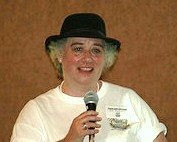At the ripe old age of 55 I am finally reading To Kill a Mockingbird. I read the first half of the novel in 2 hours but found myself stretched between needing sleep and needing to mourn the departure of my eldest son, who left March 22nd for Florida.
My middle son is reading this incredible story for high school literature, and I am being supportive. He has the book on CD so he can listen to it while driving about town. I rented the film featuring the superb Gregory Peck as Atticus Finch. I am reading the volume so we can dialogue about the language, themes, characters and plot.
Wondering about this literary gap in my life I cast back through my memory: why should I have avoided this classic? Then I remembered that the premise of the book was a small town lawyer doing the Right Thing in a rape case involving a black man. My parents would not have let me read this book in 1970. I must have read a substitute assignment. And racism never came up as a discussion.
But I was not unaware.
He was a gorgeous shade of deep chocolate, the first black I had ever seen in person. An adult, he seemed to suddenly appear at my church one Sunday as a cantor. He introduces himself prior to worship, and then he sings.
I love singing in church, but I preferred to listen to him, enrapt, sure I was hearing echoes from Heaven. After a few Sundays I sang with him, inspired, and I promised myself that I would always sing. Then our family moved and I began a new life in a new school.
Moving from New Britain to North Haven felt like a total upheaval. On the map it is a mere 30 miles. School life was no better. I watched from the trees on the playground during recess, I ate lunch alone.
Then I met Garth. He was very dark, beautiful, with long fingers and I knew he could play piano whereas my fingers are short. I envied him. I adored his hair which he let me touch, and his deep eyes that glistened with an inner light.
My fourth grade classmates stared at him in a similar fashion as they stared at me, placing us in a relationship affirmed when Mrs. Burns seated us side by side. Garth was a meticulous artist, and he taught me techniques to improve my drawings. In return, I taught him to knit. I am certain that neither activity endeared us to our competitive peers. With hindsight, I believe prejudice was active and ingrained in southern Connecticut. A student boldly labeled me “nigger lover” when Mrs. Burns left the classroom one time. I had heard the word nigger, but had no framework for interpreting it. I knew the word lover. So the intent was not received, it actually had the opposite effect. I was happy to love this young man who accepted me and interacted with me in a gentle, kind manner.
In the mysterious manner of school boards, the school zones were redrawn and I went to a different school for fifth grade and when I returned to grammar school Garth had disappeared. It was years before I saw another black person.
My family moved to New Hampshire for a year, and relocated to Rhode Island for my eighth grade adventure. I was in tenth grade when Debra and her family moved into town. She was striking, poised and articulate. She joined the cheerleaders so I was not in her circle, but she was in many of the advanced courses with me so I got to know about her. Her parents were professionals, well-educated and involved in the community. In the spring of our junior year I discovered that racial meanness was strong in southern Rhode Island. When Debra did not show up for school one day it quickly came out that a large cross was placed on her family’s front yard and set ablaze.
This awareness set me on a path. I become involved at a young age in the Civil Rights movement, and this has remained close to my heart.
It is in The Constitution of the United States—all men are created equal. This includes the elderly, sequestered in institutions. Youth trapped in barrios and ghettoes are excluded from life, liberty and the pursuit of happiness. The population we brazenly label ‘disabled’ are the final frontier in Civil Rights, and this shall be a long battle as our society and culture is deeply embedded with presumptions, prejudices, fears and misnomers. It is one thing to choose to be a maverick, a loner. It is another issue when an entire mindset needs changing.
So I read To Kill a Mockingbird 49 years after it was published. It is the only novel that Harper Lee wrote. It is powerful, her characters full of life, of human glitches, of love. It is powerful, unafraid of exposing small town traits, small people, and large evil. It is powerful, using touch words, tightly Southern dialects, images built up in the heat of Alabama, the relentless slowness that builds decades of dark secrets. I can read and digest and glory in Lee’s written legacy.
I hope I can share that with my young son.
Subscribe to:
Post Comments (Atom)

No comments:
Post a Comment